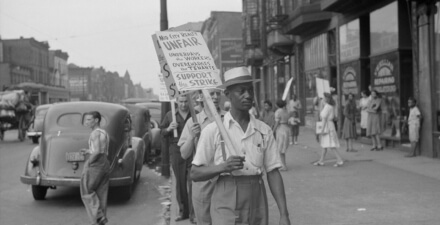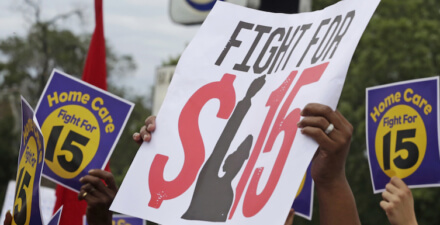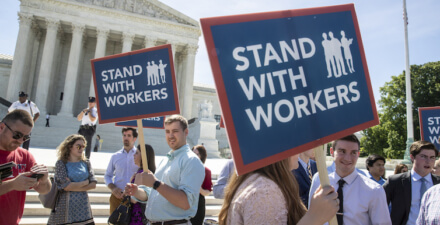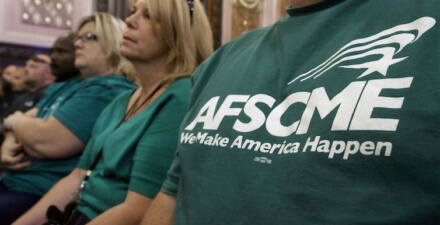Increasing evidence demonstrates the ways in which bargaining power shapes economic outcomes. One’s economic success is not merely defined by individual characteristics such as education. Equitable Growth’s work on unions and collective action in the United States examines the ways in which institutions intersect with economic trends and individual characteristics to ensure that workers can share in the gains of the economic growth to which they contribute.
Featured work
Will labor’s surging popularity result in new union members in the United States?
August 29, 2024
August 29, 2024
Unions in the United States improve worker safety and lower health inequality
December 13, 2022
December 13, 2022
Factsheet: How strong unions can restore workers’ bargaining power
May 1, 2020
May 1, 2020
Unions and the enforcement of labor rights: How organized labor protects U.S. workers against unfair and illegal employment practices
April 29, 2022
April 29, 2022
Aligning U.S. labor law with worker preferences for labor representation
February 18, 2020
February 18, 2020
Explore Content in Bargaining Power390
The latest research on the efficacy of raising the minimum wage above $10 in six U.S. cities
September 6, 2018
September 6, 2018
Labor Day is a time to reflect on reviving workers’ power in the U.S. economy
August 31, 2018
August 31, 2018
Firm wage policies and inequality: Evidence using matched employer-employee data
July 25, 2018
July 25, 2018
Understanding the importance of monopsony power in the U.S. labor market
July 5, 2018
July 5, 2018
Event recap: Research on Tap—Gender wage inequality
May 4, 2018
May 4, 2018
Explore the Equitable Growth network of experts around the country and get answers to today's most pressing questions!















